In the dynamic landscape of India’s transportation sector, the efficiency and reliability of trucks play a pivotal role in ensuring seamless logistics operations. One critical aspect that directly influences a truck’s performance and operational costs is its fuel tank capacity. At CarMax Vehicle, we understand the nuanced requirements of the Indian trucking industry and strive to provide solutions that enhance both performance and efficiency. This guide delves deep into the intricacies of Indian truck fuel tank capacities, offering insights that cater to fleet managers, logistics professionals, and trucking enthusiasts alike.
Understanding Fuel Tank Capacity
Fuel tank capacity refers to the maximum volume of fuel a truck’s tank can hold, typically measured in liters or gallons. This capacity directly impacts a truck’s range, refueling frequency, and overall operational efficiency. In the diverse terrains of India, from bustling urban centers to remote rural areas, having an optimal fuel tank capacity is crucial for uninterrupted transportation.
Factors Influencing Fuel Tank Capacity
Several factors determine the appropriate fuel tank capacity for a truck, especially in the Indian context:
Truck Type and Usage:
- Long-Haul Trucks: Require larger fuel tanks to cover extended distances without frequent refueling.
- Short-Distance Urban Trucks: Can operate efficiently with smaller tanks due to proximity to fuel stations.
Terrain and Geography:
- Hilly Regions: Trucks navigating challenging terrains consume more fuel, necessitating larger tanks.
- Flat Terrains: Offer better fuel efficiency, allowing for smaller tanks.
Engine Efficiency:
- Modern engines with better fuel efficiency can achieve longer ranges with smaller tanks.
Load Capacity:
- Heavier loads increase fuel consumption, influencing the need for larger fuel reserves.
Regulatory Standards:
- Compliance with local and national regulations regarding fuel storage and transportation.
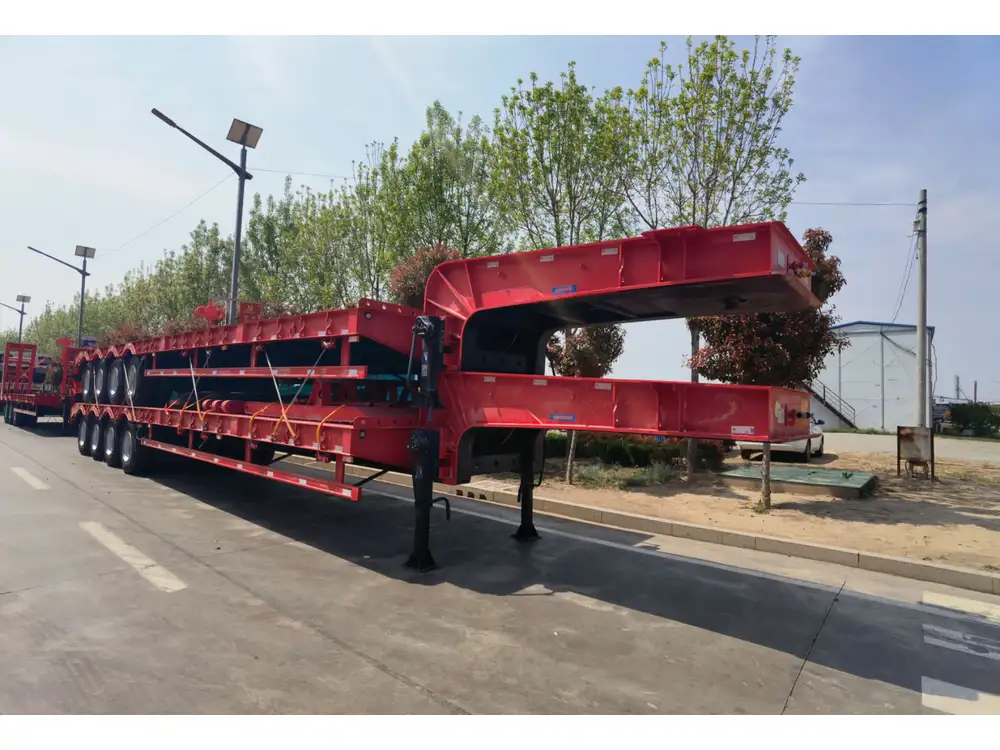
Standard Fuel Tank Capacities in Indian Trucks
Indian trucks come in various configurations, each tailored to specific logistical needs. Below is a comparative overview of standard fuel tank capacities across different truck categories:
| Truck Category | Typical Fuel Tank Capacity |
|---|---|
| Light Commercial Vehicles | 70 – 150 liters |
| Medium Trucks | 150 – 300 liters |
| Heavy-Duty Trucks | 300 – 600 liters |
| Semi-Trailers | 600 – 1200 liters |
Light Commercial Vehicles
These trucks are primarily used for intra-city deliveries and short-distance transportation. Their compact size and moderate fuel tank capacity make them ideal for navigating congested urban environments.
Medium Trucks
Medium-duty trucks strike a balance between capacity and maneuverability, suitable for both urban and inter-city transport. Their fuel tanks are designed to cater to medium-distance hauls with reasonable refueling intervals.

Heavy-Duty Trucks
Built for long-haul journeys and heavy payloads, heavy-duty trucks are equipped with larger fuel tanks to minimize downtime and enhance route efficiency across extensive distances.
Semi-Trailers
Semi-trailers, often used for transporting bulk goods over long distances, boast the largest fuel tank capacities. Their design ensures that extensive journeys can be undertaken with minimal refueling stops, optimizing time and cost.
Optimizing Fuel Tank Capacity for Indian Trucks
Optimizing fuel tank capacity involves assessing the specific needs of your fleet and aligning them with operational demands. Here’s a step-by-step approach to achieving optimal fuel tank capacity:

1. Assess Operational Routes
Analyze the primary routes your trucks will traverse:
- Urban Routes: Frequent stops and shorter distances may benefit from smaller tanks.
- Inter-State Highways: Longer distances with fewer refueling points necessitate larger tanks.
2. Evaluate Fuel Consumption Patterns
Understand the fuel efficiency of your fleet:
- Engine Performance: Efficient engines consume less fuel, allowing for smaller tanks.
- Load Variability: Heavier loads increase consumption; larger tanks can mitigate frequent refueling needs.
3. Consider Refueling Infrastructure
Evaluate the availability of fuel stations along your routes:
- Well-Served Areas: Smaller tanks may suffice where refueling stations are abundant.
- Remote Areas: Larger tanks are essential where refueling points are sparse.

4. Compliance with Regulations
Ensure adherence to regional and national fuel storage and transportation regulations:
- Capacity Limits: Some regions may impose restrictions on maximum fuel tank sizes.
- Safety Standards: Compliance with safety standards is paramount to prevent accidents and legal issues.
5. Cost-Benefit Analysis
Weigh the initial costs of larger fuel tanks against long-term operational savings:
- Initial Investment: Larger tanks may require significant upfront costs.
- Operational Savings: Reduced refueling frequency can lead to substantial cost savings over time.
Technological Advancements Enhancing Fuel Efficiency
Advancements in technology are continually reshaping fuel efficiency and tank capacity management. At CarMax Vehicle, we integrate cutting-edge technologies to enhance fuel optimization:
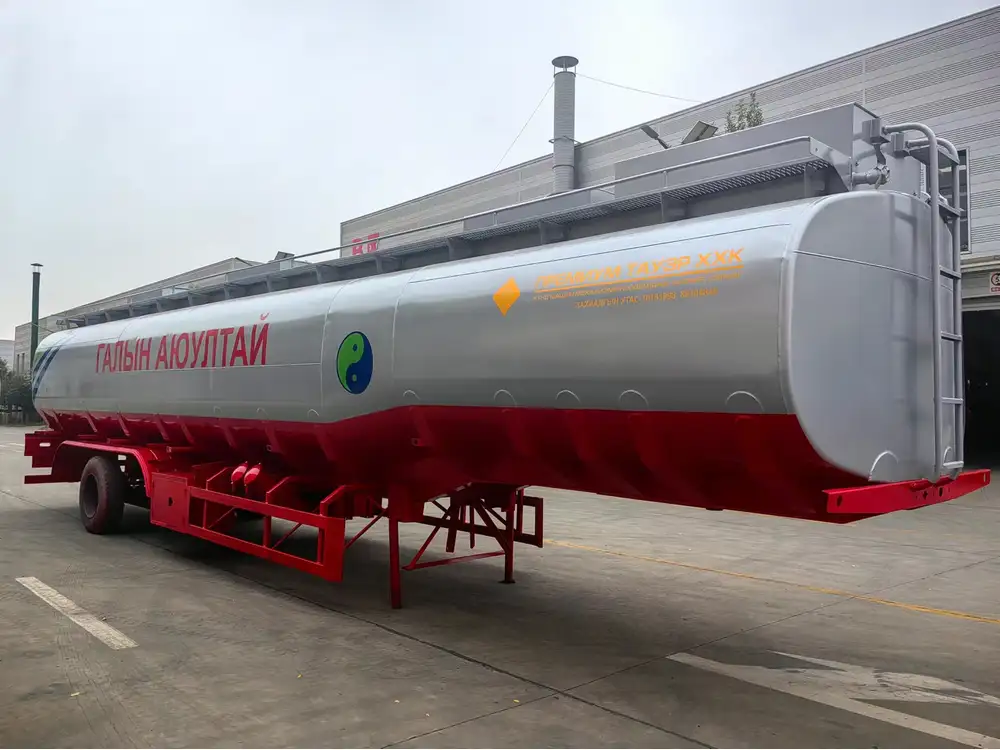
1. Advanced Fuel Management Systems
Modern fuel management systems provide real-time monitoring of fuel levels, consumption rates, and efficiency metrics, enabling proactive management of fuel resources.
2. Aerodynamic Enhancements
Improved truck aerodynamics reduce drag, thereby enhancing fuel efficiency and allowing for extended ranges without increasing tank size.
3. Lightweight Materials
Utilizing lightweight materials in truck construction reduces overall weight, decreasing fuel consumption and optimizing tank capacity utilization.

4. Hybrid and Electric Technologies
The advent of hybrid and electric trucks introduces alternative fuel solutions, potentially transforming traditional fuel tank requirements and consumption patterns.
Customizing Fuel Tanks with CarMax Trailer
At CarMax Vehicle, we specialize in designing and manufacturing customized fuel tanks that align with your specific operational needs:
Tailored Capacity Designs
Our team works closely with clients to determine the optimal fuel tank capacity based on truck type, route analysis, and consumption patterns, ensuring maximum efficiency.

Durable and Safe Materials
We employ high-quality materials that guarantee durability and safety, adhering to stringent industry standards to prevent leaks, corrosion, and other potential hazards.
Modular Tank Systems
Our modular tank systems offer flexibility, allowing for easy scaling and modifications as your fleet requirements evolve over time.
Integration with Fleet Management Systems
Our fuel tanks seamlessly integrate with existing fleet management systems, providing comprehensive data for informed decision-making and operational optimization.

Comparative Analysis: CarMax Trailer vs. Competitors
Choosing the right fuel tank manufacturer is crucial for ensuring quality and reliability. Here’s how CarMax Trailer stands out in the market:
| Feature | CarMax Trailer | Competitor A | Competitor B |
|---|---|---|---|
| Customization Options | Extensive | Limited | Moderate |
| Material Quality | Superior-grade | Standard-grade | High-grade |
| Integration Capabilities | Advanced compatibility | Basic integration | Limited compatibility |
| Pricing | Competitive | Higher | Variable |
| After-Sales Support | Comprehensive and ongoing | Limited | Moderate |
Superior Customization
CarMax Trailer offers unparalleled customization, ensuring that each fuel tank is precisely engineered to meet the unique needs of your fleet, unlike many competitors who offer limited options.
Material Excellence
Our commitment to using superior-grade materials guarantees longevity, safety, and performance, setting us apart from competitors relying on standard or variable-grade materials.
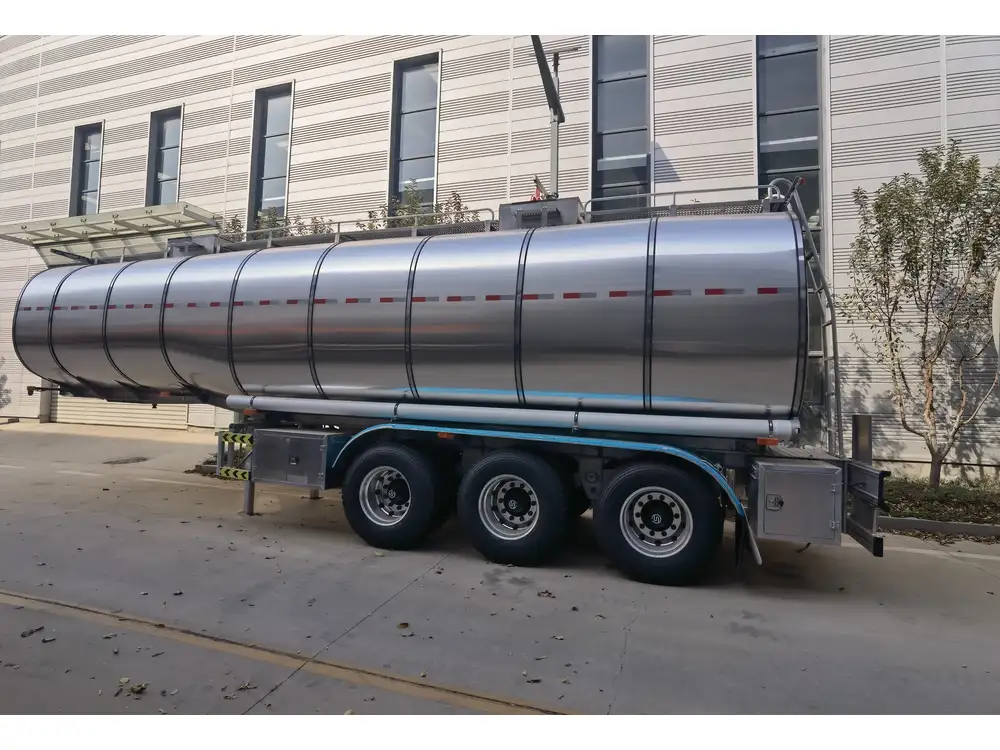
Advanced Integration
We prioritize seamless integration with advanced fleet management systems, providing our clients with real-time data and enhanced operational control, a feature not as robustly offered by other manufacturers.
Cost-Effective Solutions
By offering competitive pricing without compromising on quality, CarMax Trailer ensures that clients receive maximum value, making us a preferred choice in the industry.
Maintenance and Best Practices for Fuel Tanks
Proper maintenance of fuel tanks is essential to ensure longevity, efficiency, and safety. Here are best practices to follow:
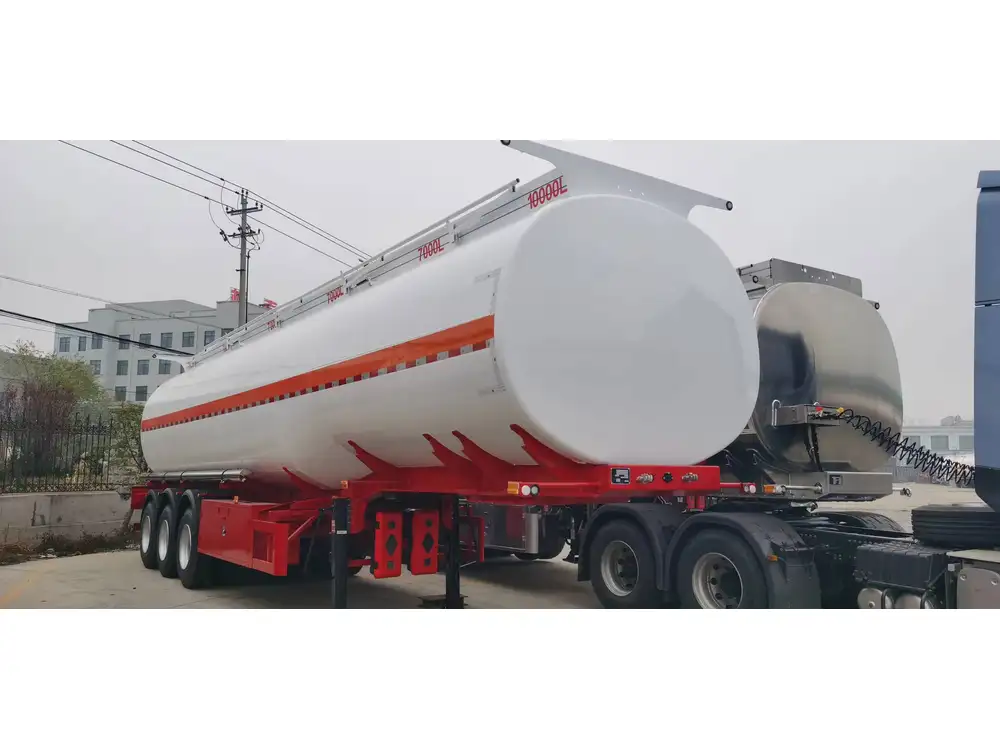
Regular Inspections
Conduct routine inspections to identify and rectify leaks, corrosion, or any structural damages early on.
Clean Fuel Tanks
Ensure that fuel tanks are kept clean to prevent contamination which can affect engine performance and fuel efficiency.
Monitor Fuel Levels
Use advanced fuel management systems to monitor fuel levels accurately, preventing overfilling and waste.
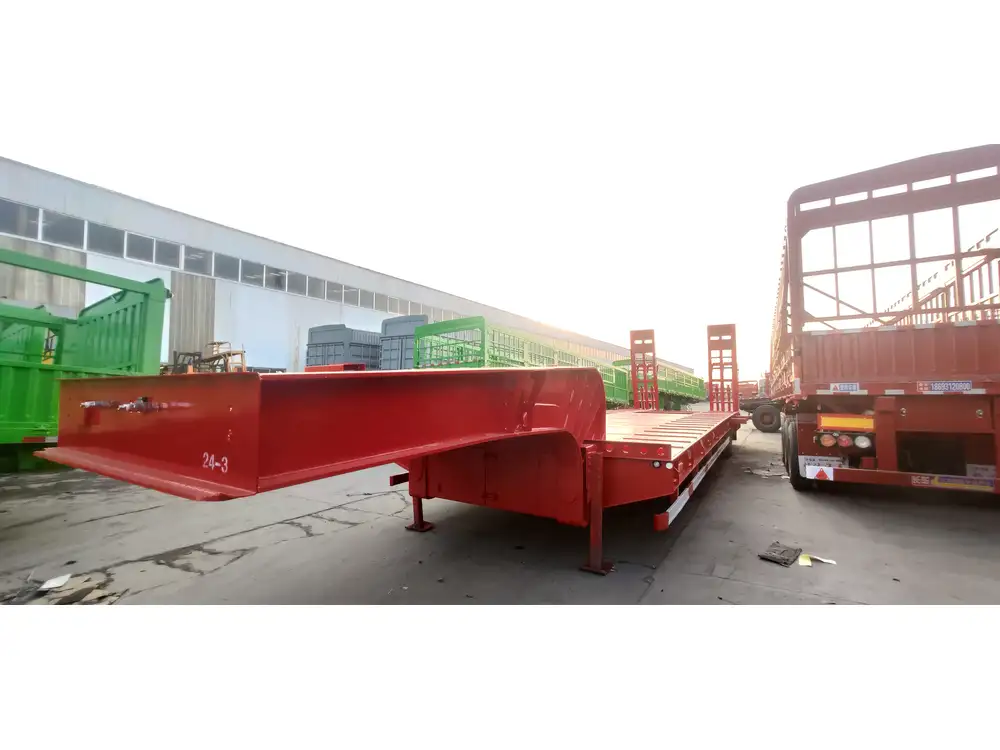
Adhere to Safety Protocols
Follow all safety guidelines during refueling and maintenance to minimize risks of accidents and hazards.
Timely Repairs
Address any issues promptly to avoid escalation, ensuring that fuel tanks remain in optimal condition.
Environmental Considerations
Sustainability is increasingly important in the transportation sector. Optimizing fuel tank capacity contributes to more efficient fuel usage, reducing the overall carbon footprint of your fleet.
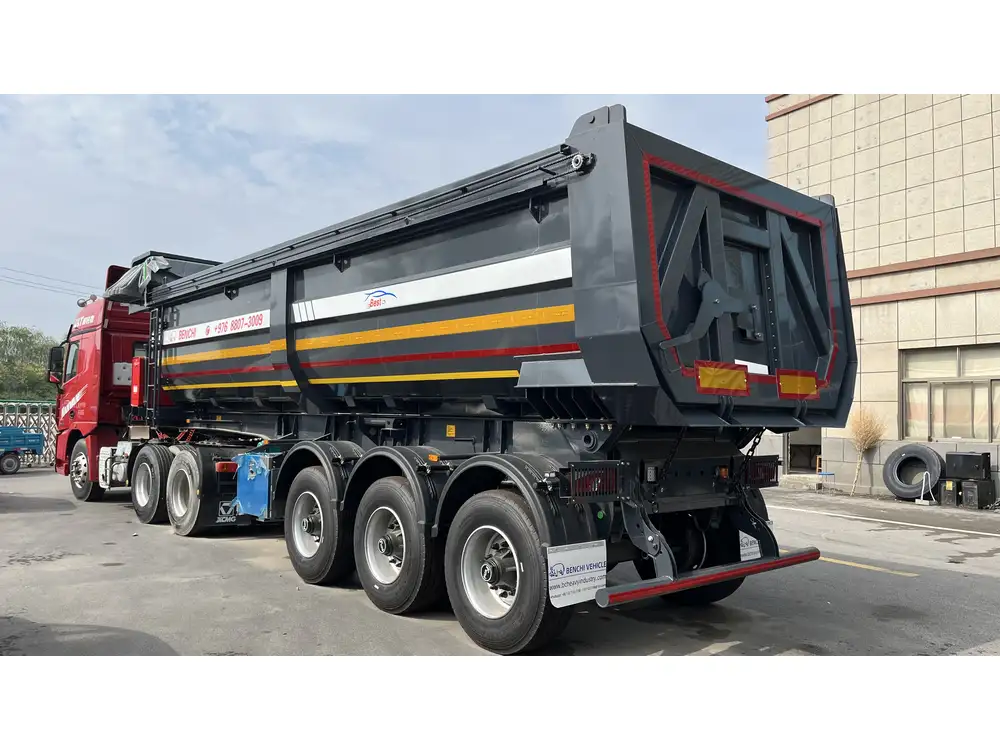
Fuel Efficiency
Larger tanks optimized for specific routes reduce the frequency of refueling stops, thereby minimizing emissions associated with idling and frequent starts.
Alternative Fuels
Exploring alternative fuels can complement optimized tank capacities, offering environmentally friendly options that align with regulatory standards and sustainability goals.
Emission Controls
Integrating emission control technologies with optimized fuel systems ensures compliance with environmental regulations and promotes greener operations.

Future Trends in Fuel Tank Technology
The future of fuel tank technology promises innovations that will further enhance efficiency and sustainability in the trucking industry:
Smart Tanks
Incorporation of IoT devices for real-time monitoring and predictive maintenance, ensuring proactive management of fuel resources.
Renewable Materials
Development of fuel tanks using renewable and recyclable materials, contributing to sustainable manufacturing practices.

Enhanced Safety Features
Advanced safety mechanisms to prevent fuel spills, leaks, and accidents, ensuring safer transportation of goods.
Integration with Autonomous Systems
Fuel tanks designed to work seamlessly with autonomous driving technologies, optimizing fuel usage and enhancing route efficiency.
Conclusion
Fuel tank capacity is a fundamental component that influences the efficiency, cost-effectiveness, and environmental impact of trucking operations in India. At CarMax Vehicle, we are committed to providing high-quality, customized fuel tank solutions that cater to the diverse needs of the Indian market. By understanding the intricacies of fuel consumption, operational demands, and technological advancements, we empower our clients to achieve optimal performance and sustainability in their logistics operations.
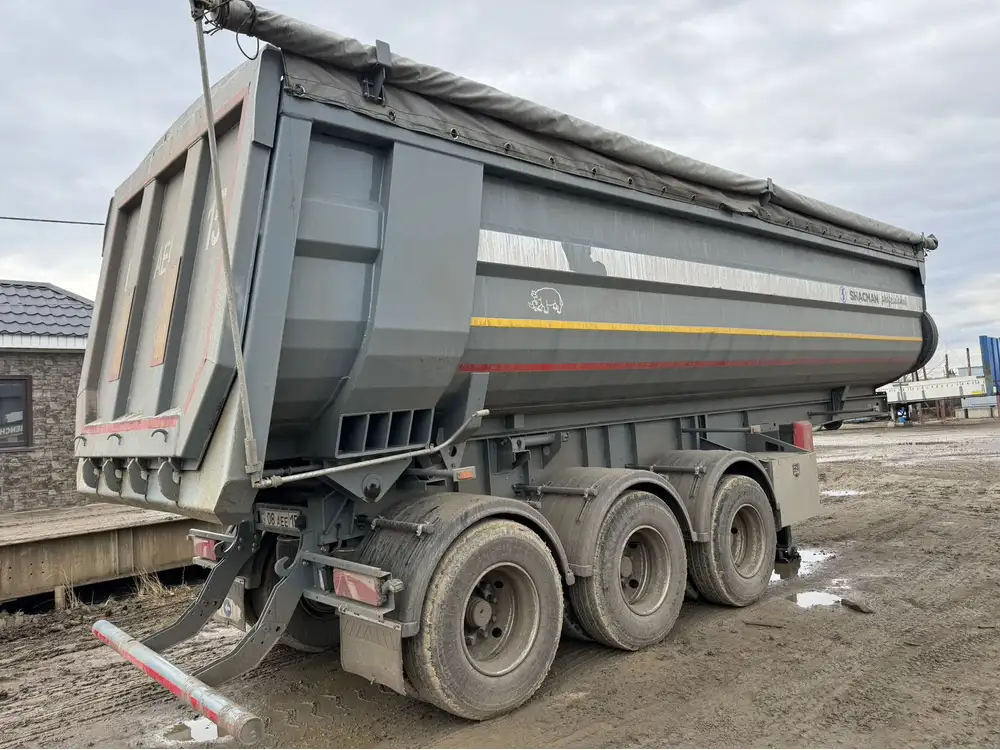
Frequently Asked Questions (FAQs)
1. What is the standard fuel tank capacity for long-haul trucks in India?
Long-haul trucks in India typically have fuel tank capacities ranging from 300 to 600 liters. This ensures that they can cover extensive distances without frequent refueling stops, enhancing operational efficiency.
2. How does fuel tank capacity affect a truck’s fuel efficiency?
Fuel tank capacity itself doesn’t directly affect fuel efficiency. However, having an optimal tank size ensures that fuel is used efficiently based on the truck’s operational needs, reducing the frequency of refueling and minimizing downtime.

3. Can fuel tank capacity be customized for specific route requirements?
Yes, at CarMax Vehicle, we offer customized fuel tank solutions tailored to the specific requirements of different routes, ensuring that each truck is equipped with an optimal capacity that aligns with its operational demands.
4. What safety features are integrated into CarMax Trailer fuel tanks?
Our fuel tanks are designed with advanced safety features, including leak-proof seals, corrosion-resistant materials, and compliance with international safety standards to prevent accidents and ensure secure fuel transportation.
5. How does CarMax Trailer support eco-friendly trucking operations?
We support eco-friendly operations by offering fuel-efficient tank designs, integrating with advanced fuel management systems, and exploring alternative fuel solutions that reduce the overall carbon footprint of your fleet.



